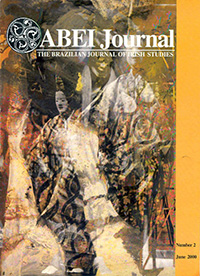The Playwright's Response to the Colonial Process: Innovatory Dramatic Structure In Brian Friel's The Freedom of the City (1973) and David Rudkin's The Saxon Shore (1986)
DOI:
https://doi.org/10.11606/issn.2595-8127.v2i1p63-69Resumo
This article compares the dramatic structure used by Brian Friel and david Rudkin in The Freedom of the City and The saxon Shore respectively. It is argued that each playwright employs innovatory techniques in order to underline his particular response to the colonial process in Northern Ireland. Brian Friel uses techniques of disorientation and displacement aimed at placing the theatre audience in the situation of the colonised. On the other hand, David Rudkin reinforces the central metaphor of his play, Hadrian's Wall at the very time of the Roman withdrawal from Britain, with the doubling of roles in such a way as to demonstrate not only the fundamental similarities between individuals in apparently opposing groups, but also, consequently, the vulnerability of the coloniser's position.
Referências
Downloads
Publicado
Edição
Seção
Licença
Direitos autorais (c) 2000 Peter Harris James

Este trabalho está licenciado sob uma licença Creative Commons Attribution-NonCommercial 4.0 International License.


